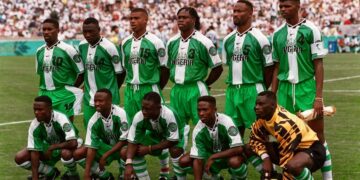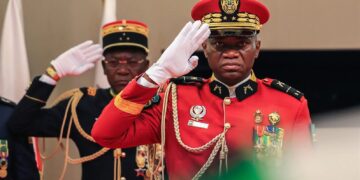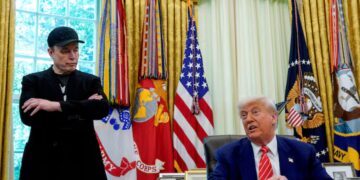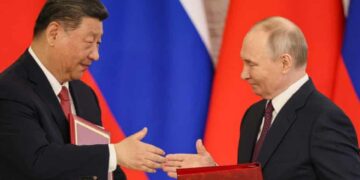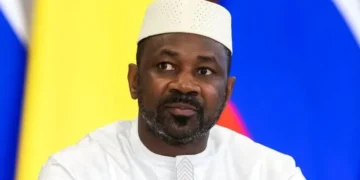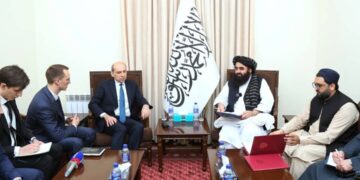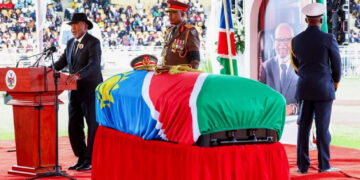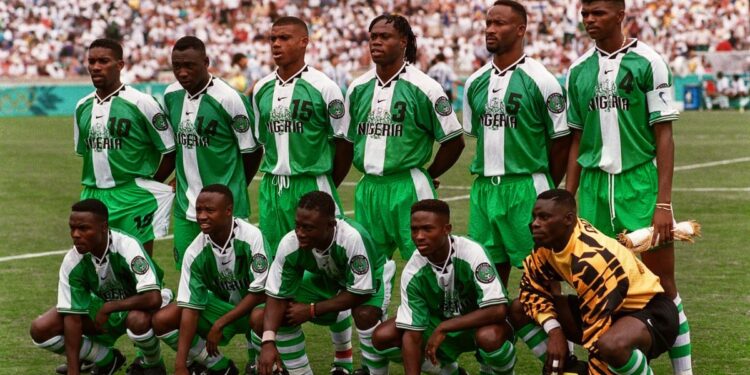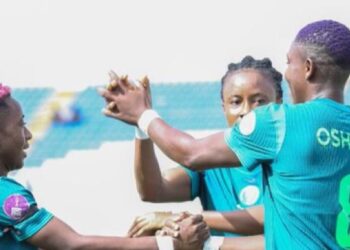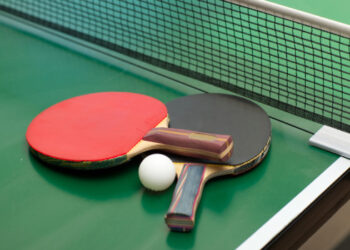By John Essien
As the country marks her 60th independence celebration, it would be pertinent to delve into the sporting fraternity, so as to detail some giant strides Nigeria has made globally in the foremost fulcrum of unity among citizens.
The country is no doubt blessed with abundant talents, at home and in diaspora; who have won accolades and hoisted the nation’s flag in the assembly of towering nations. Hence, there is no taking exception to the fact that talents are abound in this African clime.
When Nigeria became an independent nation, the need to manage and improve the various sectors of the country at our liberty emerged and the sporting sphere was not left out in the journey to global recognition.
On August 11, 1985 at the Workers Stadium in Beijing China, a group of Nigerian youngsters shocked the whole world by becoming the first African side to reach and win the final of a FIFA organized competition.
The Golden Eaglets broke the forecasts with their scintillating display which consequently put the country in the world map.
The country’s cadet teams have without a shadow doubts held sway in international competitions.
Most notably, the Under 17 also known as the Golden Eaglets which is unarguably the most successful in global football for their age group; winning a record of five FIFA U-17 World Cup titles and emerged runners up on three occasions.
Football seems to be the most watched sporting competition in Nigeria. The joy it brings upon the faces of enthusiasts sinks all forms of possible religious and ethnic clashes. It unites the nation towards a common cause, which is to cheer the various teams to success.
While we applaud the successes of the U-17 team, we must not forget the senior men and women categories for their outstanding achievements. The super Eagles of Nigeria have won the continental title three times; in 1980, 1994 and 2013 and appeared in six FIFA world cups in 1994, 1998, 2002, 2010, 2014 and 2018 respectively.
Same could be said about the Super Falcons who have cultivated a trend of dominance in the continent with an unmatched record of 11 titles since the African Women Cup of Nations began in 1993.
The Atlanta ’96 Olympic games shot the country’s sports into the spotlight yet again, however, not only the conquering entrance of the U-23 football team was noticed. But, a few individual performances which drove spectators into amusement and held the world spell bound.
Chioma Ajunwa’s 7.12m leap in her first attempt at the finals of the long jump at the 1996 Olympics remains Nigeria’s first individual gold medal in history; and the second at the games just when the dream team captained by Nwankwo Kanu won against Argentina 3 – 2 in a thrilling final encounter.
Among other individual shots at the medals table in the Olympics and commonwealth games, are Mary Onyali, Blessing Okagbare, Chika Chukwumerije; to name a few have all made the country of their origin proud.
Also, the likes of Anthony Joshua, Kamaru Usman and Isreal Adesanya all of Nigerian descent have been able to hold the reins in combat sports.
Should we talk about the Nigerian trio of Seun Adigun, Ngozi Onwumere and Akuoma Omeoga who made up the bobsled team at the 2018 Winter Olympics in Pyeongchang, South Korea?
A team that picked up bobsledding skills only 15 months before the competition; consequently made history by being the first ever African bobsled team to progress to the tournament.
Thus the term, “Giant of Africa’’ was not only used to describe the nation’s eminent presence in the cessation of crisis in most parts of the continent nor to point at her rich cultural heritage, but also because the country is populated by resourceful people.
However, despite the availability of human resources in this country; there are quite a number of limitations hanging over our journey to reach the apex in sports.
These unfavourable events in play, makes it difficult for immense growth to be witnessed and full potentials uncovered at sure grit.
The issue of poor funding has been one of the major setbacks in sports development; this is why we have often underperformed in various tournaments where we ought to have excelled.
For instance, former Chelsea of England star, John Obi Mikel once lambasted the Nigeria Football Federation (NFF) after he was forced to use his money to finance the squad for the Olympics in Brazil – Rio 2016.
The former Super Eagles captain organized trips, paid for meals and booked training pitches while also preparing physically and tactically for games.
However, the team went on to claim the bronze medal despite the poor treatment meted out to them by the country’s football federation.
Our football professional league suffers a similar fate, which has also plunged into other areas of grave concern.
There have been cases of players who slump and die during a match. This awful event takes centre stage due to the lack of professional medical experts. The services of these personnel are not enjoyed in full phase of the moon because players’ welfare is not adequately funded.
This is why it is difficult if not impossible to lure an athlete who plies his trade abroad and nurses the hopes to represent his country of birth in international competitions because their welfare package has been prioritized.
The English Football Authority pay pensions to retirees but do we have a case like that in Nigeria? No, I guess.
Why then must we cry foul each time a player of Nigerian descent chooses to play for his country of birth?
Africa and corruption from time immemorial have been labeled as Siamese twin.
It is an undeniable fact that this continent parades one of the largest athletes either representatives of their county of birth or origin. Yet, it is disheartening how the continent plays underdogs in major tournaments.
In October 2016, former Super Eagles attacker, Daniel ‘The Bull’ Amokachi opened a can of worms when he alleged that the nation’s sports had become a den of corruption.
The Tunisia ’94 and Atlanta ’96 gold medalist said this when he led a coalition of civil society (CSOS) operating under the umbrella of National Support Groups for Good Governance (NASUGG) to the gate of the National Assembly in Abuja.
Amokachi stated that his major concern was the plight of the Nigerian youth, who, he alleged, were forced to pay as much as N250,000 each to get into the national U-17 team (Golden Eaglets).
“Corruption has invaded sports so deeply that even at FIFA headquarters in Zurich, we saw how the world stood up and said, “Enough is enough.” We saw how the president, Sepp Blatter was not spared. He was removed from office because integrity matters when it comes to the constitution.”
“President Muhammadu Buhari doesn’t take nonsense when it comes to fighting corruption. I have said I will support the movement, because in my field, which is sports, corruption is now the order of the day. Amokachi continued: “For instance, in Nigerian football today, the youths, when invited to the national team, a coach will ask them to bring N250, 000 each to get into the U-17 team when he already has the talent. If a person has talent, he should be allowed to showcase what he has in the interest of the nation.” Amokachi stated.
Sport brings about unity and has it fair share of contribution to boost a nation’s economy if properly managed.
Every single club, team, organization, charity, etc that is sports related, needs employees to ensure a smooth running in a responsible way.
A recent research conducted by SportEngland shows that the profit generated by sport in England was 1.9% of the country’s Gross National Income (GNI). Hence, the need for a proper management in the sport sector of the country.
